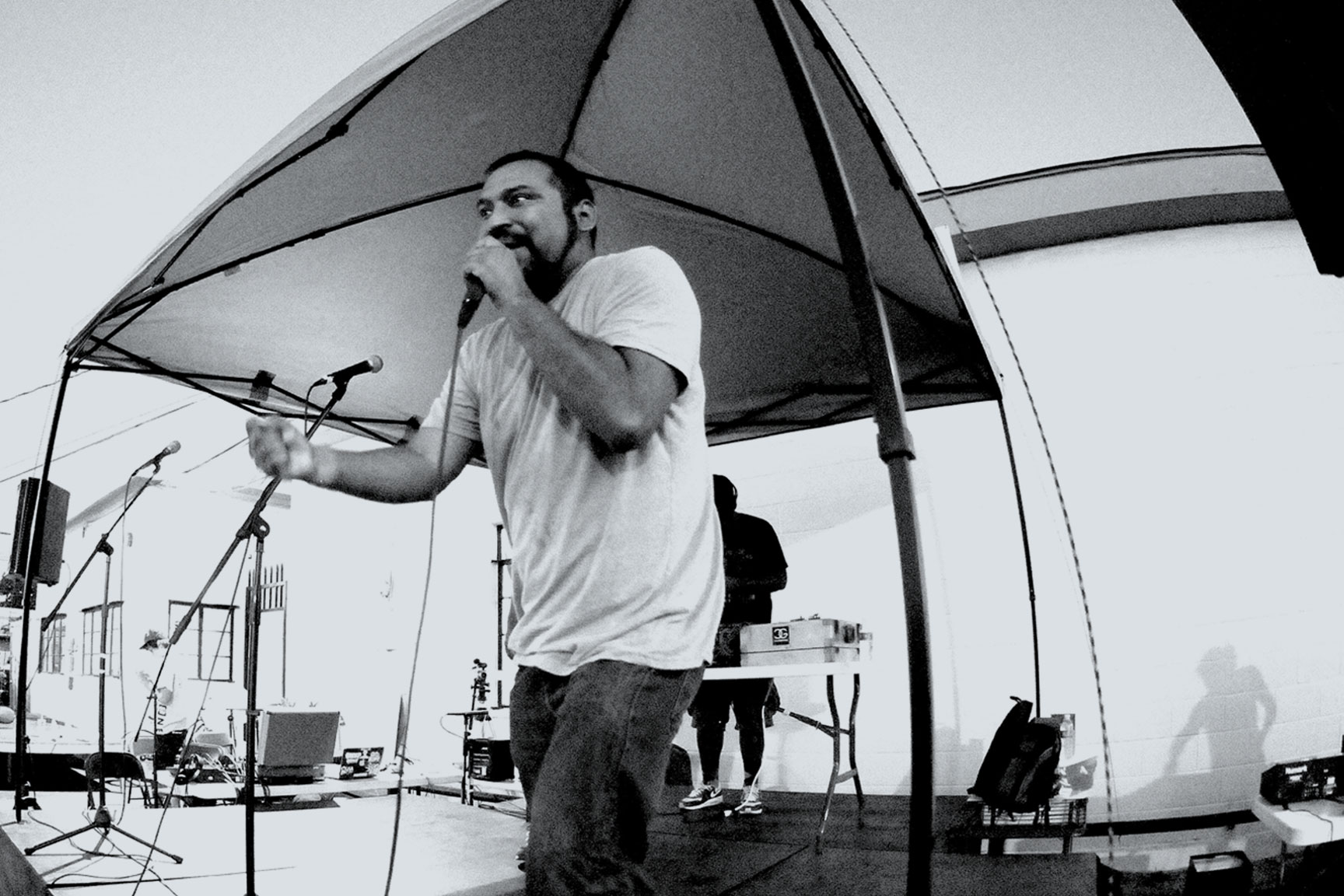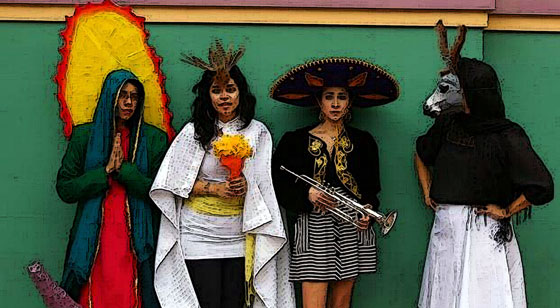


Detail from Becoming the Spectacle: The Virgen de Guadalupe, Aztec Goddess, the Mariachi, and the Donkey Lady, 2011.
Talk to Dr. Josie Méndez-Negrete and you can’t doubt her love for the written word.
The associate professor in Mexican American Studies has already crafted one book – “Las Hijas de Juan: Daughters Betrayed,” revised and published with Duke University Press in 2006 – and is currently working on two other manuscripts. But she doesn’t hoard her talents. Her successes and even her failures have translated to work with “Chicana/Latina Studies: The Journal of Mujeres Activas en Letras y Cambio Social.” (MALCS)
“It’s a passion for knowledge, a passion for mentoring and a desire to change the world though academic work is why I do this,” she said.
Dr. Josie Méndez-Negrete
It’s been working. After first being housed at University of California Davis under the title “Voces”, and then Loyola Marymount University where it took its current name, the journal found a home at The University of Texas at San Antonio (UTSA) in 2009. Now, under the editorship of Méndez-Negrete, UTSA’s College of Education and Human Development (COEHD) has teamed with volunteer organization Mujeres Activas en Letras y Cambio Social to publish the journal’s ninth, and twice-yearly publication, which is now on its twentieth volume.
That success can be attributed to the journal’s leadership, its emphasis on collaboration and its broader focus on many areas of scholarship.
Sandra D. Garza, doctoral student in the Department of Bicultural-Bilingual Studies' Culture, Literacy, and Language program and managing editor and review coordinator for the journal since its arrival at UTSA in 2009, says the journal has differentiated itself from other professional publications in a couple ways.
“So many professional journals are focused on one kind of scholarship - academic essays,” she said. “‘Chicana/Latina Studies’ values various forms of expression and doesn’t privilege one over the other.”
She said by placing poetry, commentary and essays in conversation with each other, the journal occupies a unique place in the world of scholarship.
The journal’s mentorship process also places it apart from other scholastic publications. To utilize the peer-review process, Méndez-Negrete says the editorial team has to institute many layers to the process so that they “empower people to publish.”
Unlike other publications that reject or accept a piece wholesale, the journal at UTSA works with writers, Méndez-Negrete says. If a piece is not exactly the way it needs to be, say someone didn’t follow the exact protocol for fact checking or has not written in the style sheet of the journal, the staff will work with the writer to bring their piece up to publication standard.
“Writing isn’t easy,” Méndez-Negrete said. “It is not something we do because we are endowed with the capacity to write. It is a craft. You have to learn it.”
The peer-review process helps each contributor learn the steps of publication. This scaffolding mentoring, as Méndez-Negrete calls it, consists of writers, copy editors, professionals and students. The publication process gives COEHD graduate assistants, and undergraduates, a chance to polish their fact checking, reviewing and researching skills and become deeply involved in the publication process.
“If a writer is doing a piece that is going to contribute and build knowledge clearly, we invest in it and we turn it around and get it published,” Méndez-Negrete said.
The process not only helps contributors to the journal but also the staff. Through the work she has done with the journal, Garza says she has learned much about the importance of collaboration and mentoring.
“It’s helped me to grow as a student, scholar, parent and partner,” she said. “Even on the most difficult days I feel extremely fortunate to be a part of this publication and organization.”
Just like in the editing process, collaboration can been seen in every step of the journal on its journey to publication.
Méndez-Negrete recognizes Dean Betty Merchant, Associate Dean Page Smith and Alicia Steeves for their support and for having “the sense of what it takes to produce a project of this magnitude.”
And, although Méndez-Negrete and her COEHD colleagues do the bulk of the work, the journal is truly a collaborative partnership with the MALCS professionals spread out across the country. Dr. Tiffany López, professor at University of California Riverside co-edits the journal and is responsible for acquisitions in the creative side of the journal. However, Méndez-Negrete and López, in collaboration with the National and Editorial Review Boards and the membership, solicit manuscripts for publication at professional conferences.
For Méndez-Negrete, the journal is a vehicle through which she can share her passion for writing. The published author has gone through the trials and tribulations of publication, and that gives her a lens through which she can honor the vulnerability of producing a piece of writing.
“I understand that it is a risk and it takes a lot of trust to send your work out with the impending possibility that you can be hurt, you can be devalued and that it can change your life,” she said.
“Chicana/Latina Studies: The Journal of Mujeres Activas en Letras y Cambio Social” is the interdisciplinary flagship journal for Chicana/Latina Studies and is published twice a year. According to the MALCS website, the journal “is committed to exploring Chicana/Latina experiences through research articles, literary criticism, creative writing, review essays, occasional commentaries, and book reviews.” For more information, on the journal or how to submit, visit www.malcs.org.